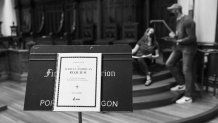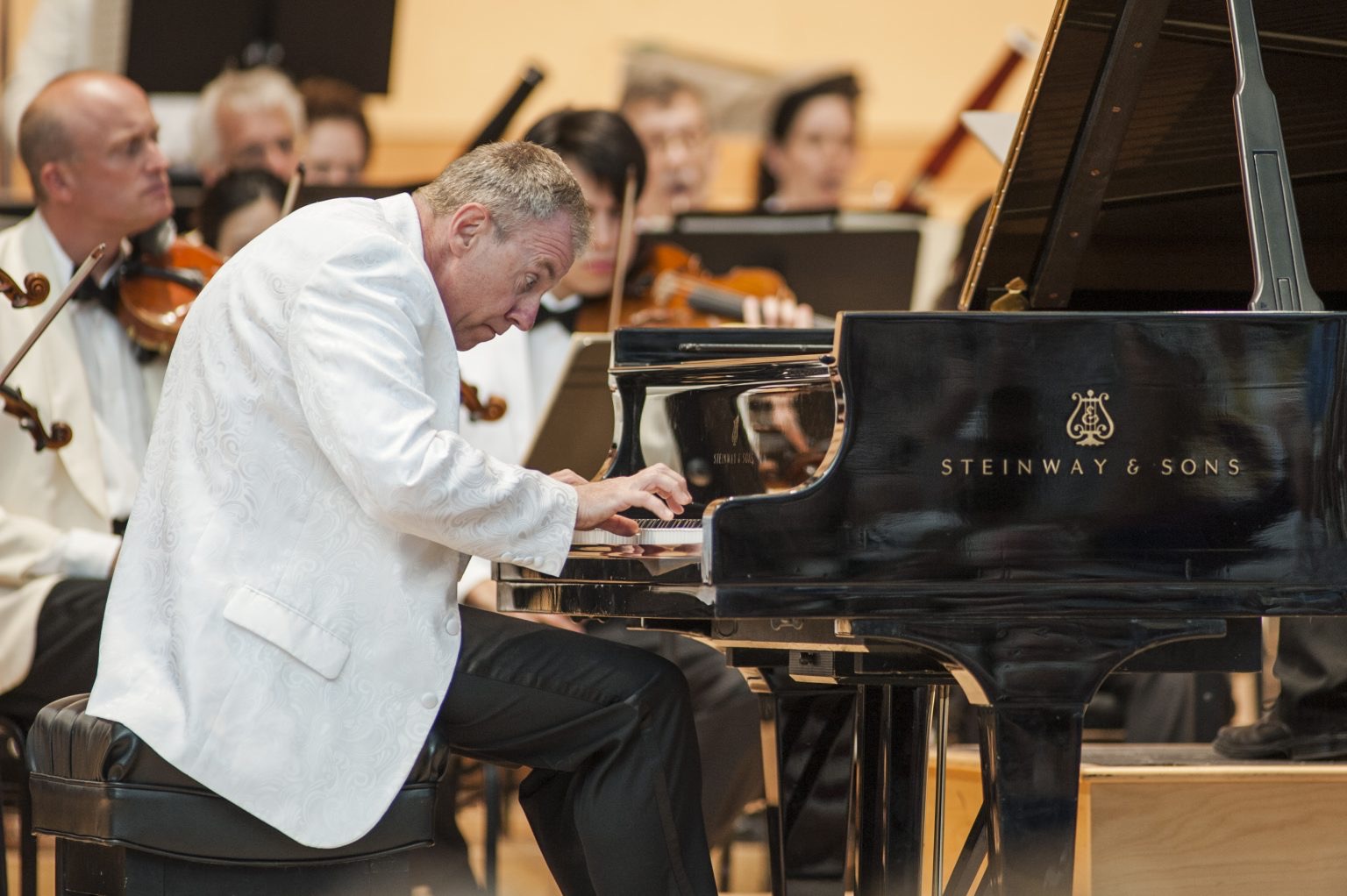
Music is most powerful when it starts a conversation. When Damien Geter wrote An African American Requiem, he wanted to shine a perpetual light on those who lost their lives due to racial violence in America and inspire people to talk about that violent aspect of American life.
“I think music has a very important role in opening up conversations with folks who may have differing points of view in a way that just being on a panel doesn’t,” Geter said. “When you write a piece of music and you have something to say, it has a different impact.”
Working in collaboration with the Fort Worth Symphony Orchestra, Fort Worth Opera will present the southwest regional premiere of An African American Requiem on January 28 at the Van Cliburn Concert Hall at TCU.
Geter is an operatic singer, appearing at the Metropolitan Opera, Seattle Opera, Eugene Opera, Resonance Ensemble, Third Angle New Music, Vashon Opera and Portland Opera. His musical theater credits include In the Heights and Jesus Christ Superstar. He made his television debut as John Sacks in NBC’s Grimm. He is currently the Interim Music Director and Artistic Director for Portland Opera and the Artistic Advisor for Resonance Ensemble.
Get DFW local news, weather forecasts and entertainment stories to your inbox. Sign up for NBC DFW newsletters.
Composing has always come naturally to him.
“I’ve always been a composer, really,” Geter said. “Since I was a kid, I would make up melodies at the encouragement of my piano teacher.”

Geter has composed chamber, vocal, and orchestral pieces as well as full operatic works. His compositions include Cantata for a Hopeful Tomorrow, Invisible, The Justice Symphony, Buh-roke, and String Quartet No. 1, Neo-Soul, and 1619. While his works sometimes address social justice issues, Geter strives to capture a full picture of the African American experience, showing the love and joy in the community.
The Scene
“The thing I don’t want to do is always talk about issues that are traumatic because I think Black people are much, much more than the trauma of our history,” Geter said.
Geter savors the moment when the musicians breathe life into his works.
“I think my favorite part is where it is being performed and the performers do more through their interpretation than I could have ever imagined with my own ear,” Geter said.
Geter had to wait a few years to hear musicians play An African American Requiem. Commissioned by Resonance Ensemble and Oregon Symphony, the debut of the work was postponed from 2020 to 2022 because of the pandemic.
“There are still no full, complete Requiem masses – the liturgical mass – that is dedicated to the victims of racial violence in the United States,” Geter said.
In this 20-movement work, Geter fuses the traditional Latin Requiem with Bible verses, contemporary text and elements of jazz, gospel, and spirituals. The work requires a large orchestra, a full chorus, and a solo quartet.
“This is sort of a mirror of Verdi’s Requiem. I took a lot of his forms and plugged them into my own,” Geter said. “There are certain movements that have spirituals interwoven in the Latin movements so that’s one way to tap into our history. I think I write in a way that one would maybe call from the Black diaspora so the sound of it is – pardon me saying – Black. There are elements of Black music, jazz. There is a jazz section in one of the movements.”
Geter uses text from Ida B. Wells’ speech from 1909, Lynching is Color Line Murder.
“That is the apex of the piece because it talks about what the piece is about: the lynching of Black people in the past and the present,” Geter said.
Geter will come to Fort Worth to conduct An African American Requiem, marking the first time he has conducted it. He prepares for the assignment as he would a work by another composer.
“I have to learn the piece,” Geter said.
When he steps onto the podium, Geter will become the first Black conductor in the Fort Worth Opera’s 76-year history.
“I am definitely not the first qualified Black conductor to lead this orchestra and to lead the chorus,” Geter said, paraphrasing Terence Blanchard’s comment when he became the first Black composer produced at the Metropolitan Opera in 2021. “At the same time, it is kind of exciting. I say that with a little bit of reservation. And I hope I am not the last.”
Geter knows his role as a conductor is important as he recollects watching Black singers on PBS as a child.
“I remember thinking as a kid, ‘I wish Jessye Norman was my aunt,’” Geter said. “I think what I was saying without having the vocabulary was ‘I see a future in this business because I see her doing it.’”

An African American Requiem concludes with the chorus singing the spiritual, Walk Together Children.
“So, that is very hopeful, I think. Don’t get tired, we gotta keep doing this. At the same time, I recognize not everything is hopeful,” Geter said.
The work concludes in B Major, creating a sound Geter intends to elicit a complex reaction.
“To some people, it is going to sound hopeful. And to others it will sound like we have a lot more work to do. Because I think we have to have both,” Geter said. “The reason why people keep fighting is because they have hope.”
Learn more: Fort Worth Opera



